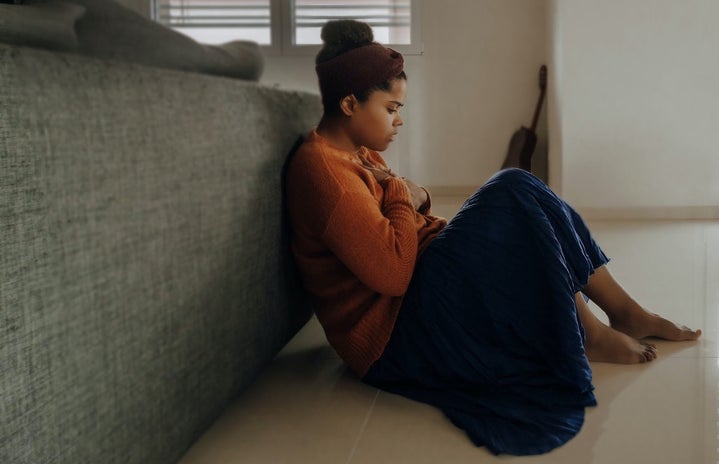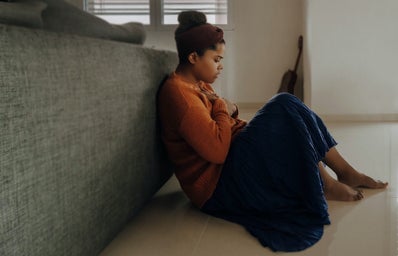I’ve heard the phrase “life is a rollercoaster of ups and downs” more times than I can count. This saying probably comforts many people by reminding them that suffering isn’t permanent and good things are just around the corner—yet for me, it’s an anxiety-inducing reminder that happiness doesn’t last.
For as long as I can remember, often when I experience a period of time where everything goes well—I get a good grade on an assignment, go on vacation with my family, or land a job I really wanted—I immediately become filled with a sense of dread. I grow hyper-aware that I’m currently in an ‘up’ period of my life and begin to panic about what bad thing will inevitably happen to send me into a ‘down’ period. This often ruins my good mood by increasing my anxiety and I only calm down when I think the other shoe has finally dropped.
what is this feeling?
I’ve since learned that this is called happiness anxiety—it occurs when an individual has mistakenly learned to associate happy events with the onset of bad news. The basic thought pattern in people with happiness anxiety is that embracing joy will somehow create misfortune. Some examples of thoughts I have had in the past are: “I had such a fun time hanging with my friends today, so something bad is going to happen to me on my drive home” and “If I let myself get too excited about my upcoming vacation, my plane will crash.” Articulating these thoughts is somewhat embarrassing, as I realize they probably sound ridiculous and nonsensical. I know this and yet can’t help but think them.
why do I feel this way?
There are many factors that may contribute to happiness anxiety. For some, it’s a maladaptive protection mechanism that can prevent them from being hurt or let down in the future. Staying in control of their expectations can provide a sense of safety—if they don’t let themselves feel too happy when things go right, then they won’t feel as bad when things go wrong. It’s the dulling of emotion on both sides of the extreme.
For others, like myself, happiness anxiety stems from a tendency towards emotional reasoning—a thinking style where the individual bases their view of situations on the way they’re feeling. If you feel like something bad is going to happen, then that is evidence that it will happen. This often leads to a vicious cycle as someone who experiences anxiety might then interpret it as a sign of impending bad news which will increase stress and so on.
I’ve come to realize it’s important to recognize that living in a perpetual state of panic about the future does virtually nothing to mitigate any future suffering. If anything, it increases suffering by preventing me from feeling happy in the present.
how I manage my happiness anxiety
For years, I felt alone and like no one could relate to the way I was feeling. The first step in my journey to managing these thoughts was learning that they weren’t abnormal or unique to me, but symptomatic of a recognized form of anxiety. Knowing now that I have happiness anxiety, there are many techniques I have developed or been taught by professionals that help me mitigate my extreme worry and spiralling thoughts.
Practicing mindfulness has always helped my general anxiety. When I experience a period of joy and begin to fear the worst, I use breathing exercises and/or meditation to bring me back to the present moment and feel happy without any guilt. I also try to recognize inconsistencies in my thinking patterns. For example, even though I think good news will be followed by bad news, I never assume the opposite. If life is a rollercoaster of ups and downs, it would follow that suffering isn’t constant and will be followed by periods of happiness. Lastly, I make a mental list of previous times in my life when enjoyment didn’t result in catastrophe or when something bad did happen to me and I persevered through it.
Anxiety is something I have dealt with every day for years, so I never expect to be fully free from these thoughts. However, by identifying the type of anxiety I was experiencing, learning more about my thought patterns, and employing coping strategies, I’m now able to take control of my anxiety instead of letting it control me.


